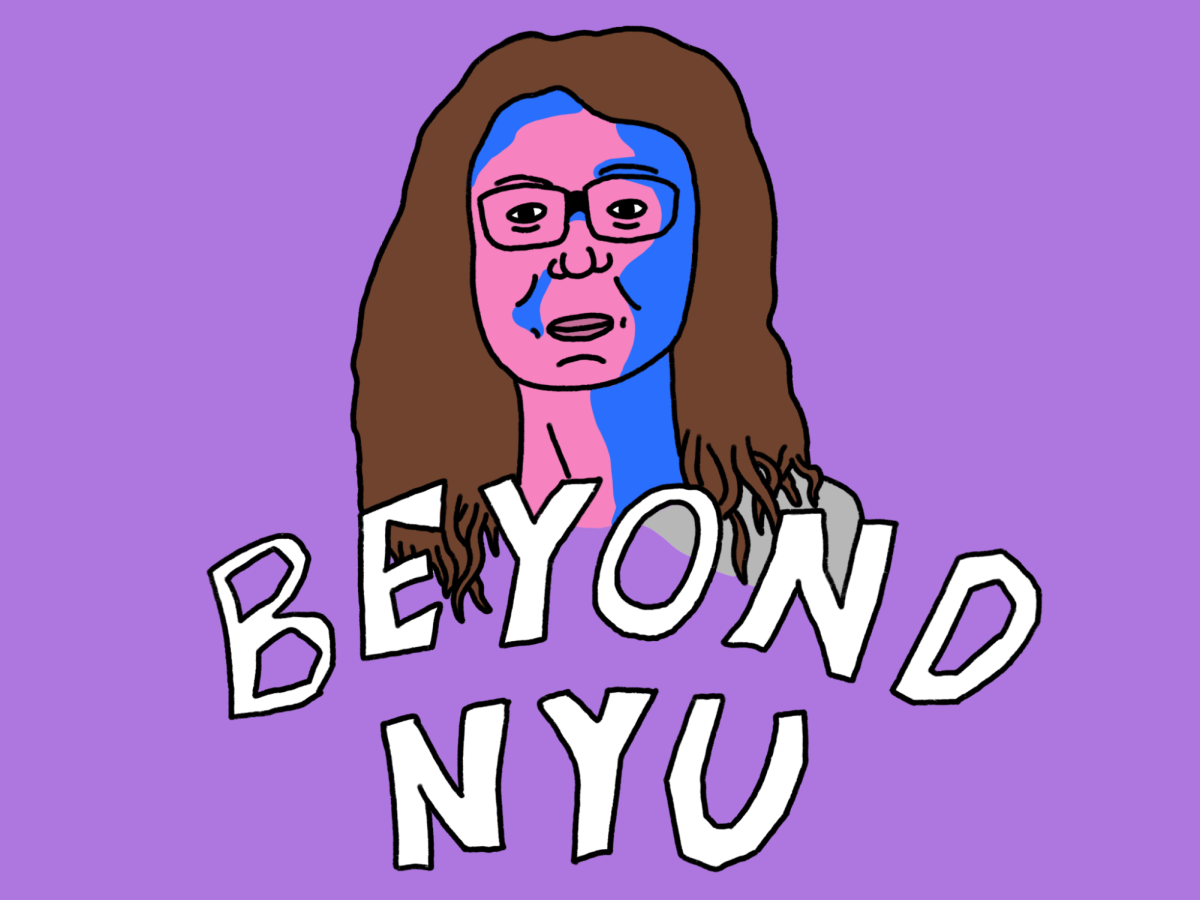Emmy award nominee and Steinhardt alum Lynne Feldman knew that she wanted to study music in college. Despite an earlier career in sound editing, she later chose a different path, earning a master’s degree from Columbia Business School. From there, Feldman decided to venture into the social impact industry, where she has dedicated 15 years of her career.
Although Feldman desired to be a part of the music world, she knew that she wasn’t fit to perform on stage. Instead, she sought out universities that would prepare her for a career in music recording and sound engineering. Her search led her to NYU, where she graduated with a bachelor’s degree in music technology in 1999. Feldman then began her career in sound editing, working on films like “Pucker Up” and “Independent Lens.”
In an interview with WSN, Feldman delved into her love for music, her diverse career transitions and the influence she has had within the realm of social work.
This interview has been edited for length and clarity.
WSN: What sparked your interest in sound editing?
Feldman: I’m a rock musician — I have been since I was 13. When I was in New York, I played with bands, and we played in town and gave it our best shot. While we didn’t quite make it to rock stardom, we had fun. Rock music has always been at the center of what I was interested in, but I was mostly working on hip-hop and rap in the late ’90s — I got exposed to that genre as well. I also worked with some interesting artists, but the hours weren’t very good because sessions would start at 5 p.m. and go all night, which was hard — it was also very male-dominated. At a certain point, I felt that it might be best for me to find something that would let me have my lifestyle of going out at night and playing music at clubs, while also still working.
In her role as a sound editor for documentaries, Feldman was responsible for blending natural sounds, voiceovers and music to craft a captivating auditory experience for the listener. Feldman received an Emmy nomination for her sound editing in “Jockey,” a documentary about horse racing.
WSN: Was there a particular movie or documentary you worked on that stands out to you?
Feldman: There is a series still running that I worked on called “The First 48,” and it is one of the original true-crime dramas where the documentary filmmakers would go out with homicide detectives right as they would get a call about a murder and follow them around. The idea is that the first 48 hours are the most critical in any murder investigation. That sticks out in my mind because those documentary filmmakers were a bit ahead of their time in getting into the true crime craze that we are in now, and it was a lot of hard work in sound editing because they would be in environments where they had no control over the sound. Plus, we really had to use the sound effects and music to ramp up the drama to keep the audience engaged.
WSN: What did it feel like to find out you were an Emmy nominee?
Feldman: I worked with a great team. My colleagues at the recording studio did the mixing and the video post-production at our sister organization, so we all felt like it was a huge win. We felt really excited for HBO’s documentary because it was such a great piece of work, looking at the lives and challenges that jockeys have faced — especially regarding weight and some of the pressures of a very high-stakes profession.
Feldman said her NYU degree was helpful in landing an internship at a recording studio, which helped her transition into a career in sound editing for television. She enjoyed the clientele and the challenge of doing sound editing but only did that for five years before leaving the industry to pursue her MBA. She ended up working for Audible — Amazon’s audiobook platform — to create a system that allows kids to access children’s audiobooks on their own.
WSN: Why did you decide to shift from sound editing to business?
Feldman: I love sound editing, but at a certain point, I felt like I wanted to expand my horizons. I went and did an MBA at Columbia Business School, but I still wasn’t totally sure what my future was going to look like. I did a short stint with a company called Audible, which kind of allowed me to bridge my past career as a sound engineer into a business career. The thing that most drew me into nonprofit work was having a really strong personal impact — using my skills and education to have some social impact was really attractive to me. I also loved the people who were working in this sector.
In 2014, Feldman began working at LifePath — a nonprofit organization dedicated to supporting the elderly in Western Massachusetts. She worked as the director of community service, overseeing projects that help elders have access to home care, help broaden health care accessibility for LGBTQ+ elders and support individuals who are unable to make or prepare their own meals.
WSN: Why do you enjoy your work at LifePath?
Feldman: I love helping people who know how to help people and having a business mindset. Having the technical skills that I got through my different degrees and my experience enables me to support those people with a lot of the nuts and bolts business management things so they can go on and do what they need to do to help people and can solve a social problem. I really love being that person and being able to clear those pathways for the people who are experts in doing this.
Contact Bruna Horvath at [email protected].






















































































































































